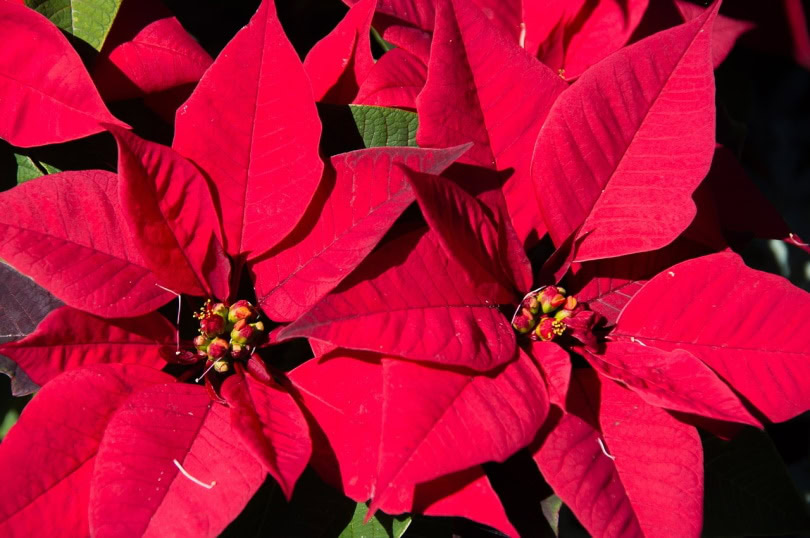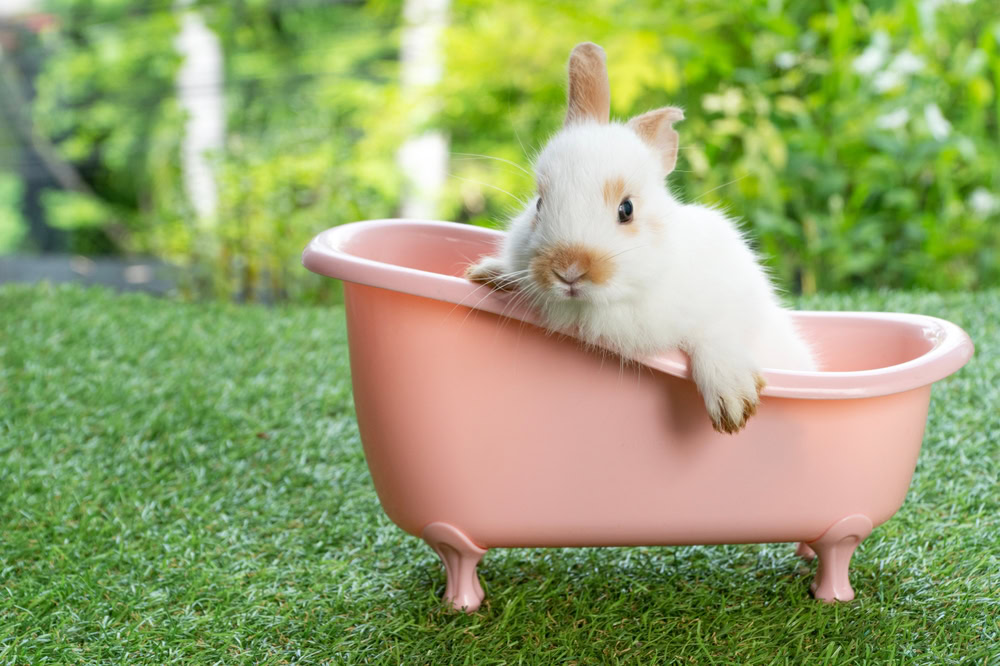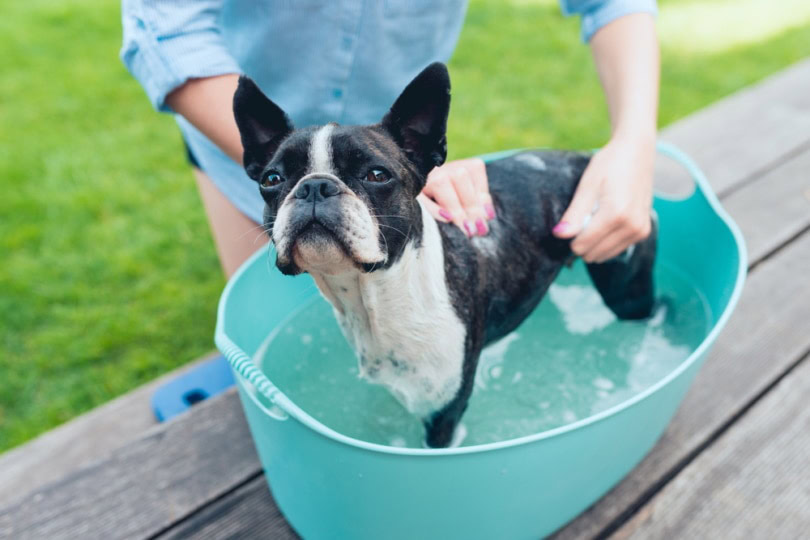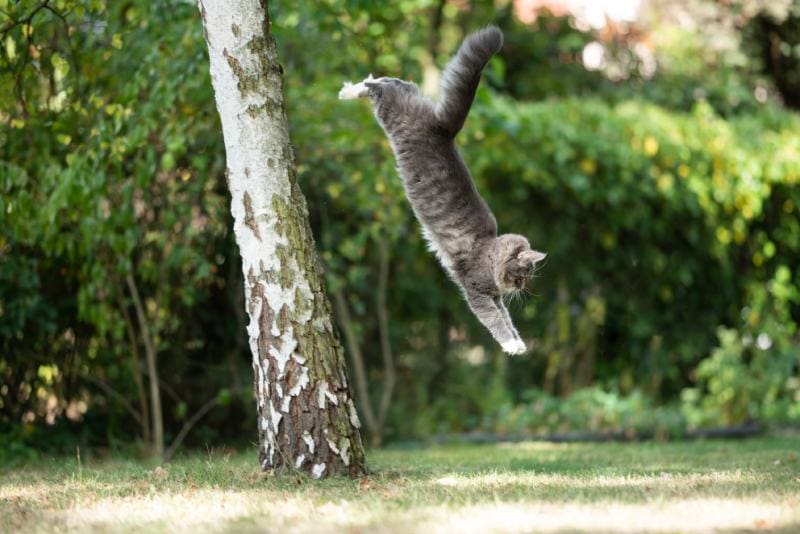VET APPROVED

The information is current and up-to-date in accordance with the latest veterinarian research.
Learn more »Click to Skip Ahead
If your cat will be sharing a home with a poinsettia for the holidays, you might need to find ways to separate them for the safety of them both. Although poinsettias (Euphoribia pulcherrima) are considered poisonous to cats, their danger is often exaggerated since their sap is only mildly toxic. However, you probably still want to keep them away just to be safe. Here are some tips on how to do that, but first…

Are Poinsettias Toxic to Cats?
An irritating white sap contained in the leaves renders the poinsettia plant mildly toxic to dogs, cats, and horses. However, poinsettias will usually only cause stomach upset and mouth irritation. Ingesting a poinsettia leaf might cause your cat to vomit, but you probably won’t have to take them to the vet. Of course, you should always take your cat to the vet if they’re experiencing extreme lethargy, vomiting, or having other signs of illness such as not eating for longer than a couple of days.
Poinsettias are actually one of the least toxic houseplants that are popular in December. Other seasonal plants such as mistletoe, holly, amaryllis, and some species of pine trees are highly toxic. Additionally, pine trees aren’t good choices for cat-friendly Christmas trees because the prickly needles can puncture their intestines if swallowed. These should be replaced by artificial variations if you want the aesthetic, or by an alternative plant that’s more cat-friendly such as a fir or spruce. You can always check the ASPCA’s extensive list of toxic and non-toxic plants before you bring home something new to make sure it’s safe.
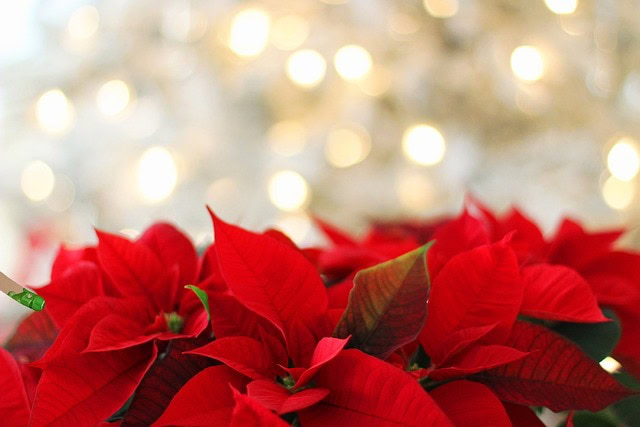

The 6 Ways to Keep Your Cat Out of the Poinsettias
Even though poinsettias are only mildly toxic to cats, you still don’t want your cat eating one. You want to avoid your cat the oral and digestive irritation that comes with it. Regardless of the situation, here are some tips to keep your cat away from your poinsettias.
1. Keep Them Out of Your Kitty’s Reach
You might try displaying the poinsettias on a high shelf. Of course, cats are naturally curious creatures, so this could actually encourage them to go take a sniff. Try to find a place without easy access, such as a mantle. Don’t put the poinsettia on the counter when there’s an open bar stool that your cat can simply hop on.
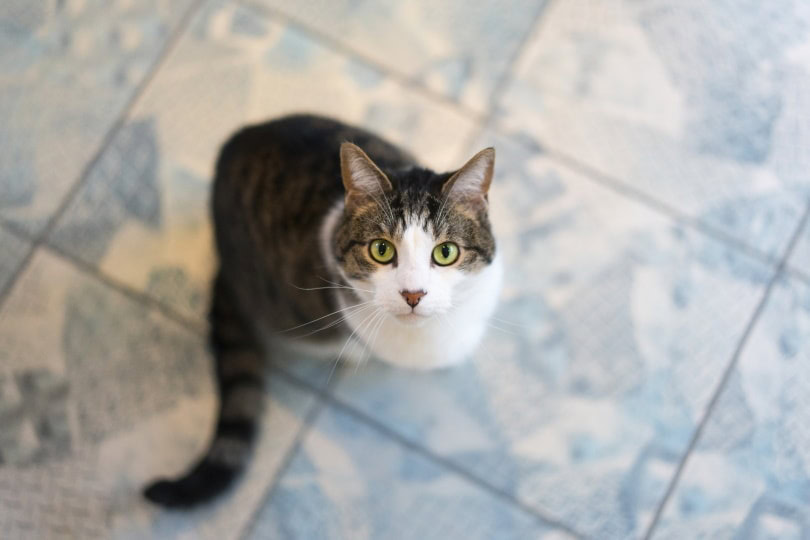
2. Separate Your Cat and Your Plants
If your cat has restricted access to certain areas of your house, you can put your poinsettias in there. We don’t recommend growing any super toxic plants in your house at all, even if it’s in a separate room. There’s always a chance your cat could sneak in. But poinsettias should be safe, especially if you’re just keeping them during the holiday season.
3. Wrap Aluminum Foil Around the Plant
Cats famously seem to hate aluminum foil, so another option is to try wrapping it around your poinsettia. Keep in mind that not all cats will avoid aluminum foil (particularly if they regularly see and play with it). It’s also not always an effective long-term solution, but if your cat dislikes the sound, feeling, or sight of aluminum foil, it may work well to keep them away during the holiday season.
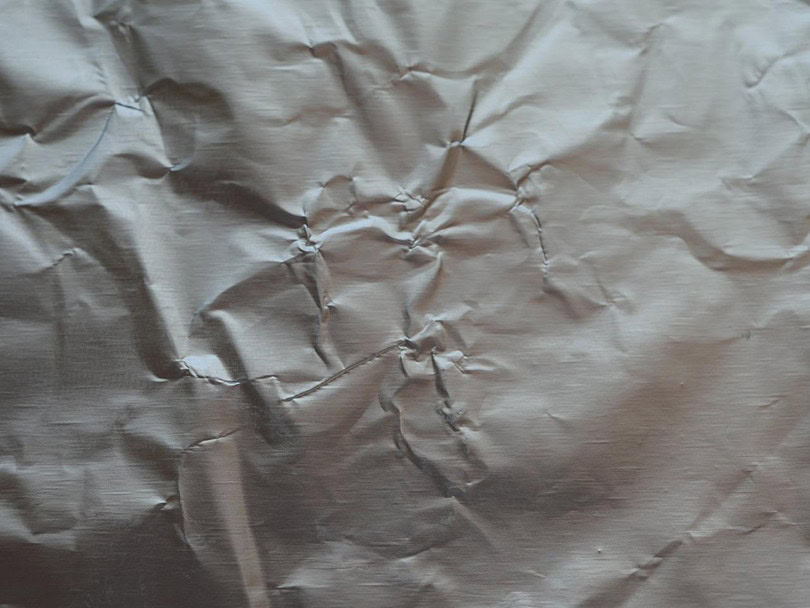
4. Use Artificial Poinsettias
Replacing your real poinsettias with the artificial variety can be a very cat-safe alternative. You can avoid the risk of having a toxic plant around your cat while still enjoying the beauty of this distinctive decoration. There are many high quality options for sale online and in stores like Home Depot and Walmart. Even better, you can keep your new plants around all year or store them for the next holiday season!
5. Sprinkle Cayenne Pepper Around the Plant
Cats don’t typically like the smell of cayenne pepper, either. If you sprinkle some ground cayenne pepper around the pot, they may decide to let the plant be. This is not the best method, since cayenne pepper contains capsaicin, which is not toxic but is irritating to cats.
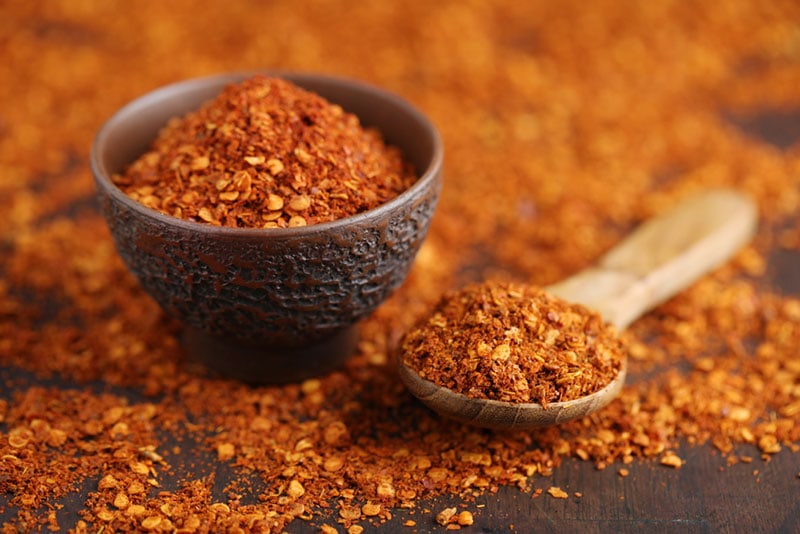
6. Plant Something Else They Can Play With
Cat grass and catnip are both plants that your cat will go crazy for. They’re completely safe and enjoyable for your pet. Having alternative plants that are okay to play with can distract your cat from the ones that aren’t. A word of caution: If you’re planting catnip or cat grass from seed, make sure you keep it out of your kitty’s reach until the plants have sprouted and matured. Some cats can mistake a container of potting soil for a perfect indoor litter box. Others might think the dirt is a fun medium to sink their claws into and scatter it everywhere.

What to Do If Your Cat Ingests a Poinsettia
If your cat eats part of a poinsettia plant, keep a close eye on them. Although they might experience a mild digestive upset, you probably won’t need to rush them to the vet, but it’s recommended to contact them for advice. Watch out for vomiting or diarrhea, loss of appetite, or lethargy. If your cat displays any of these symptoms, take them to the vet to be safe.

Conclusion
Usually, cats and houseplants don’t mix, especially during the Christmas season. Your cat might experience mild indigestion and mouth irritation if they eat a poinsettia. However, it’s usually nothing major, and hopefully, these tips will help keep your cat away from the poinsettia plant in the first place. If you don’t want to take any risks, it’s probably better to buy artificial flowers or decorate with seasonal plants that don’t pose any known dangers, such as a miniature spruce.
- https://excitedcats.com/how-to-keep-cats-away-from-poinsettias/
- https://www.hillspet.com/cat-care/healthcare/holiday-plants-dangerous-for-cats
- https://www.aspca.org/pet-care/animal-poison-control/toxic-and-non-toxic-plants/poinsettia
- https://cat-world.com/are-christmas-trees-poisonous-to-cats/
- https://pets.thenest.com/poinsettas-poisonous-cats-6673.html
- https://www.petinsurance.com/healthzone/pet-health/pet-toxins/poinsettias-and-pets/
- https://www.purina.com/articles/cat/care/holiday-plants-poisonous-to-cats
Featured Image Credit: sandid, Pixabay
